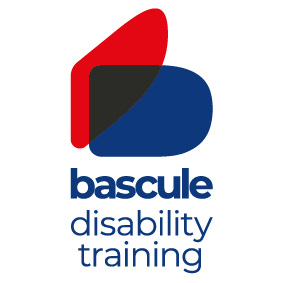Reasonable adjustment during unreasonable times

As the Coronavirus crisis grows, a working culture of awareness, acceptance and support has never been more crucial. Managing Director of Bascule Disability Training, Chris Jay offers guidance for employers on supporting their most vulnerable staff members…
Hidden disabilities
When most people think of someone with a disability, they usually picture a wheelchair user. It’s no wonder, the universal sign for disability is, after all a person in a wheelchair. However, the vast majority of disabilities are actually ‘hidden’ or unable to be visually identified in any way, and as a result, many disabilities go unacknowledged (or even undisclosed) both in society and the workplace.
With the rise of Coronavirus, many people with disabilities (including respiratory conditions, cardiovascular diseases, cystic fibrosis, diabetes, asthma, to mention just a few), will have the ‘underlying health conditions’, or will be immunocompromised, making them much more vulnerable in this time of crisis.
Supporting vulnerable staff members
Up until now, it’s possible that many immunocompromised people have not required additional support from their employers. It may even be that, as an employer, you have been unaware that certain staff members even have a disability, for a variety of reasons. It could be that your working culture hasn’t properly developed an openness towards disability and therefore disclosure levels are low, which at this point could prove to be problematic as certain staff members may be most vulnerable to the virus.
So, what can be done?
By now, most businesses have already implemented remote working which will allow vulnerable people to be able to isolate by working from home. The next thing you can do is make sure staff are fully aware that, as an employer you will do your best to support their needs. Sending a message that reaches out to teams, openly inviting suggestions for ways in which their home working experience may be improved, will be gladly received. This may be related to equipment and technology, agreed working home hours, working deadlines or other HR related issues.
It’s also necessary to consider those with children, or those who have partners or relatives that may be immunocompromised, as they will equally require additional support.
Managers could also offer one-to-one discussions with any member of staff that has disclosed vulnerability, to help them plan their working week, to discuss their isolation and how they can realistically maintain both their safety and productivity.
It is also very important to offer vulnerable members of staff flexitime to ensure work at home can fit around the essential plans they must make. This may mean offering allowances to work certain hours in the evening instead of the day, or to postpone some work to the weekend. Flexibility will also ensure that the needs of carers supporting a vulnerable loved one or family member can be met.
Support groups- Becoming more than a workplace
Currently, as more and more people react to the Coronavirus, the support structures which people with disabilities rely on become increasingly difficult to access, especially if they are self-isolated. A good example of this is the lack of available delivery times for internet shopping.
It’s a good idea to create a support group via the workplace to ensure that any vulnerable staff members can call on colleagues for help. This can be as simple as a WhatsApp group maintaining the link between co-workers and those who may be immunocompromised. Maintaining regular contact and offering assistance will be very reassuring in such difficult times, especially if a person has a limited network of friends and family. Furthermore, we must recognise the very negative impact on mental health that these months of homeworking will have on everybody, not just those with pre-existing conditions, a lot of the advice in this article is beneficial to all staff members, with or without a disability.
The circumstances the virus has brought upon us will mean that we must develop a new sense of community, whereby we come together and look after each other. The workplace can lay the foundations for a strong community and, by creating these networks we can provide critical support for people with disabilities, which some may come to rely on. We also, of course, recognise that businesses and business owners will also be under considerable stress during this period, however, without your workforce behind you, rebuilding after the crisis will be that much more difficult.
no images were found



